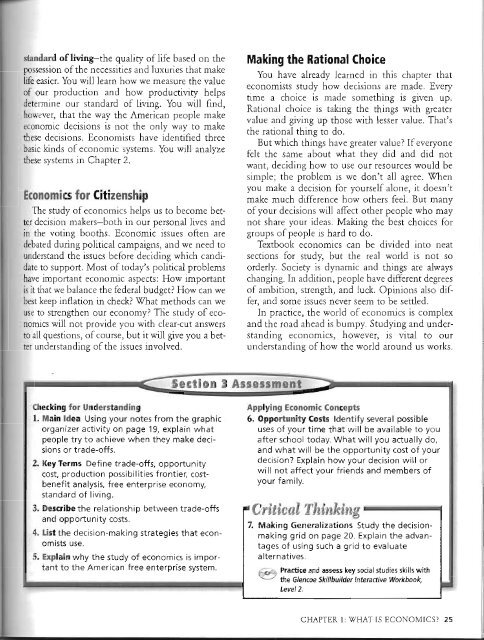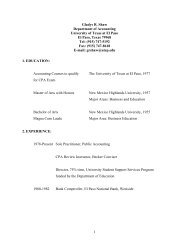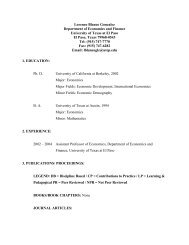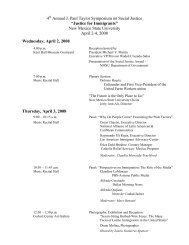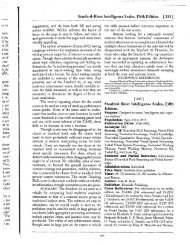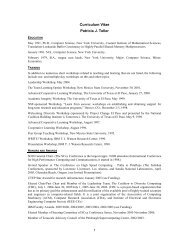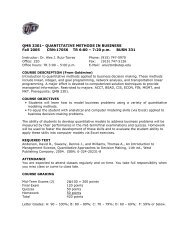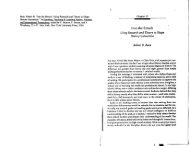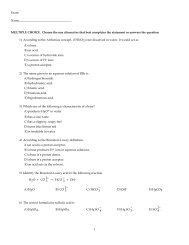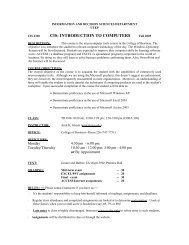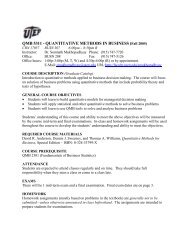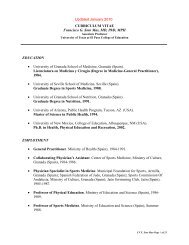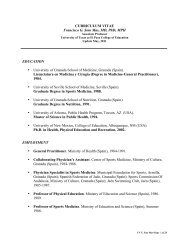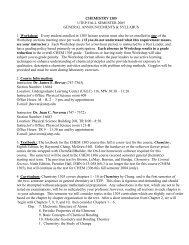Supply & Demand - Faculty.utep.edu
Supply & Demand - Faculty.utep.edu
Supply & Demand - Faculty.utep.edu
Create successful ePaper yourself
Turn your PDF publications into a flip-book with our unique Google optimized e-Paper software.
s1andanl ofliving-the quality of life based on thepossession of the necessities and luxuries that makelife easier. You will learn how we measure the valueof our production and how productivity helpsdetermine our standard of living. You will find,however, that the way the American people makeeconomic decisions is not the only way to makethese decisions. Economists have identified threebasic kinds of economic systems. You will analyzethese systems in Chapter 2.Economi 10 Cifze 5 ~pThe study of economics helps us to become betterdecision makers-both in our personal lives andin the voting booths. Economic issues often aredebated during political campaigns, and we need tounderstand the issues before deciding which candidateto support. Most of today's political problemshave important economic aspects: How importantis it that we balance the federal budget? How can webest keep inflation in check? What methods can weuse to strengthen our economy? The study of economicswill not provide you with clear-cut answersto all questions, of course, but it will give you a betterunderstanding of the issues involved.Making the Rational ChoiceYou have already learned in this chapter thateconomists study how decisions are made. Everytime a choice is made something is given up.Rational choice is taking the things with greatervalue and giving up those with lesser value. That'sthe rational thing to do.But which things have greater value? If everyonefelt the same about what they did and did notwant, deciding how to use our resources would besimple; the problem is we don't all agree. Whenyou make a decision for yourself alone, it doesn'tmake much difference how others feel. But manyof your decisions will affect other people who maynot share your ideas. Making the best choices forgroups of people is hard to do.Textbook economics can be divided into neatsections for study, but the real world is not soorderly. Society is dynamic and things are alwayschanging. In addition, people have different degreesof ambition, strength, and luck. Opinions also differ,and some issues never seem to be settled.In practice, the world of economics is complexand the road ahead is bumpy. Studying and understandingeconomics, however, is vital to ourunderstanding of how the world around us works.ecking for U d~r and n_1. Main Idea Using your notes from the graphicorganizer activity on page 19, explain whatpeople try to achieve when they make decisionsor trade-ofts.2. Key Terms Define trade-ofts, opportunitycost, production possibilities frontier, costbenefitanalysis, free enterprise economy,standard of Iivi ng.J.Describe the relationship between trade-oftsand opportunity costs4. List the decision-making strategies that economistsuse.5. Explaio why the study of economics is importantto the American free enterprise system.Applying Econom" Concepts6. Opportunity Costs Identify several possibleuses of your time that will be available to youafter school today. What will you actually do,and what will be the opportunity cost of yourdecision? Explain how your decision will orwill not aftect your friends and members ofyour family.Cril·icang .......iiiillllliiiiiiiiiiiiiiiiiii~7. Making Generalizations Study the decisionmakinggrid on page 20 Explain the advantagesof using such a grid to evaluatealternatives.:--: _ Pramte and a55e5S key social studies skills with~ the Glencoe Skillbuilder Interactive Workbook,Levell.CHAPTER 1 WHAT [$ ECONOMICS? 25


